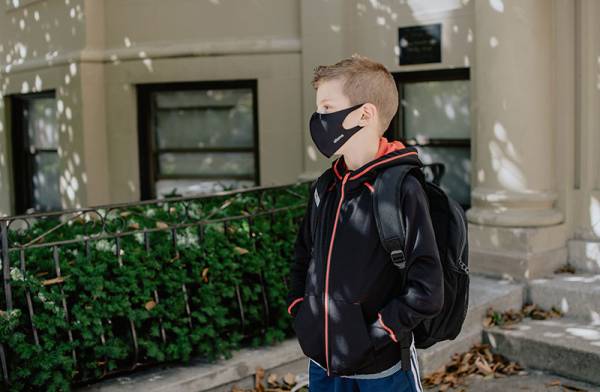Is The COVID 19 Vaccination Safe for Children? How Do Courts Decide?

Marcus Sixta, Mediator, Family Lawyer, Called to the Bar in B.C. and Alberta
As the COVID-19 vaccine rollout picks up steam, long-awaited relief from the anxiety and disruption caused by the pandemic moves ever closer. But while all of us look forward to better days ahead, the idea of vaccinating children may stir up long-standing divisions for some separated parents.
How might the courts rule on these disputes? It is clear from recent decisions that the courts will usually defer to the directions given by government health authorities and side with the parent who is in support of vaccination for children.
In the very recent 2021 case of A.P. v. L.K., 2021 ONSC 150 (CanLII) the Ontario Supreme Court was faced with an appeal of an arbitration in which the arbitrator concluded that it was not in the best interests of the children to become vaccinated. The court set aside this arbitration decision.
In the arbitration, one of the parents opposed vaccination believing that the science of vaccinations has not been adequately tested, that there is medical evidence indicating that vaccinations may be more harmful than beneficial, and that there is a conspiracy between “Big Pharma” and government.
The mother introduced expert evidence opposed to vaccination in the arbitration process, while the father simply provided numerous government documents which support the use of vaccinations.
The Supreme Court found many problems with the mother’s evidence and experts, including that they did not have proper qualifications or knowledge of vaccines. The court sided with the father and concluded that:
[273] The appellant’s plan is thus to vaccinate the children against vaccine-preventable diseases in accordance with medical advice from a physician. I agree that it would be appropriate to obtain a physician’s advice and guidance as to the best way to vaccinate a child who has not received any of the usual childhood vaccines on the usual schedule.
[274] The appellant’s plan is appropriate because it addresses an unnecessary risk the children currently face: illness, permanent health consequences, or death, from vaccine-preventable diseases. It does so in an appropriate way – through the administration of vaccines that are properly tested, and have been found to be safe and effective, with only minor side effects, in accordance with medical advice. Vaccinating the children is a safe way to protect them against unnecessary and serious risks.
In another decision from Ontario, Tarkowski v. Lemieux (2020) O.J. No. 2627 where a vaccination for COVID 19 became an issue, both parents argued for sole decision-making of their 6 year old daughter. The justice hearing the matter ruled in favour of the mother, but with a key exception: the father would oversee all vaccination-related decisions. The judge was not impressed with the mother’s beliefs about vaccination, including that vaccines might be linked to Autism Spectrum Disorder or immune system issues. The judge felt that such beliefs necessitated protection of public safety as well as the health of the child and stated:
“Since children and young people often show little or no reaction to the virus, a decision to vaccinate a child may be informed by a public health concern that COVID-19 is a virus that is easily spread and which disproportionately harms older people, and people with challenged immune systems, Ultimately, a decision to vaccinate (the child) may be a decision to protect other vulnerable people against (the child) spreading the disease.”
In a case successfully argued by Crossroads Law, D.R.B. v. D.A.T., 2019 BCPC 334 (CanLII) a separated couple had two young children and had joint decision-making authority. The father was applying to have the children vaccinated in accordance with government immunization schedule. The mother opposed vaccination outright. The court found in favour of the father and stated:
[41] The current best evidence is that vaccination is preferable to non-vaccination, that it is required in order to protect those who cannot be vaccinated as well as to protect ourselves, and that any adverse reaction the person may have from the vaccine is largely outweighed by the risk of contracting the targeted disease. Both boys are considered to be in good health and have no contraindications in their medical records that would suggest they should not be vaccinated. They are active, social and connected children. They are exposed in their home and social environment to the risk of these diseases and should be vaccinated to be protected against them.
[43] I am satisfied on the evidence that the parental responsibility for the medical and dental treatments for both boys should lie solely with D.R.B. I order that C.D.B. and A.J.B. be vaccinated in accordance with Immunization BC’s immunization schedule and the recommendations of their family doctor. I further order that D.R.B. have full parental responsibility for the medical and dental treatment of C.D.B. and A.J.B. going forward. However, D.R.B. is required to advise D.A.T. of any medical appointments, recommended treatment, and course of action with respect to the medical or dental treatment of these boys.
There is now a solid foundation of case law supporting vaccination of children. It is clear from these decisions and others that the courts believe that it is in the best interests of children to be vaccinated, regardless of parents’ personal views. Also, a parent who disapproves of vaccination for their children may be found to be unreasonable, which could result in the court taking away their ability to make decisions regarding the health of their children.
Now that COVID-19 vaccination programs are ramping up across the country, expect to see more instances of this approach coming from our courts.
The family lawyers and mediators at Crossroads Law are experienced in dealing with child vaccination cases. Contact us now to schedule your free consult.